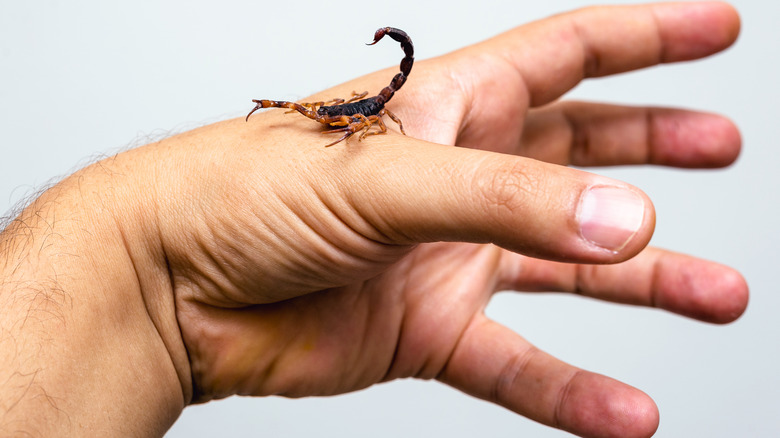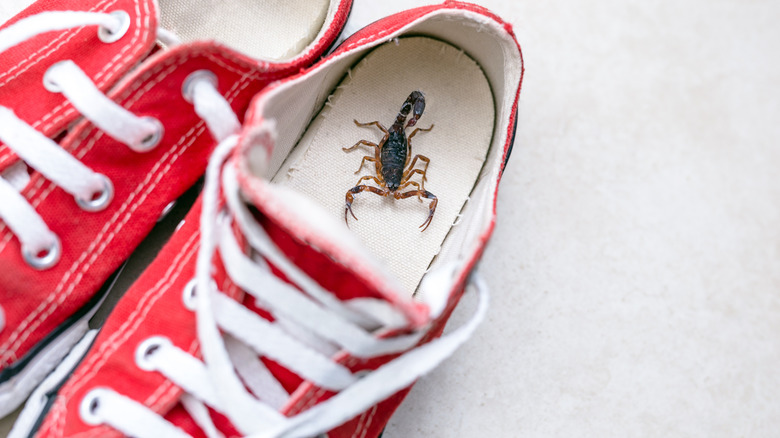The First Thing You Should Do After A Scorpion Sting
Although they may bear a striking resemblance to a miniature lobster, scorpions are not crustaceans. Not only that, they're not even insects. Rather, the San Diego Zoo Wildlife Alliance explains that scorpions are eight-legged arachnids with as many as 2,000 different species thought to exist around the globe. The United States is home to more than 40 of these species. However, the Mayo Clinic notes that only one of those 40 species of scorpion poses a threat to humans. Although all scorpions produce venom, the vast majority of stings are not dangerous. In fact, Medscape reports that scorpion stings have been responsible for only four deaths in the U.S. over an 11-year period.
In the event of a surprise encounter with one of these creepy crawlers under a rock, in your garage, or nestled within a log pile, it may sting you with its tail as a defense mechanism, explains the Cleveland Clinic. The most common symptoms of a scorpion sting include swelling, tingling, burning, and redness at the site. However, in more serious cases, an individual may experience trouble breathing, full-body numbness, difficulty swallowing, seizures, slurred speech, irregular heartbeat, and muscle twitching, amongst other symptoms. Should this occur, seek emergency medical care, as well as if the person stung was a child, notes the Mayo Clinic. However, most other scorpion stings can be treated at home. Here are the steps you'll want to take to self-treat the injury.
How to minimize your chances of being stung by a scorpion
First and foremost, thoroughly wash the affected area with water and soap (via Cleveland Clinic). Once you've done that, apply a cold compress to the skin to help ease the discomfort. Research published in Merck Manual suggests placing an ice cube in plastic and wrapping it up in a thin towel. Topical products containing an antihistamine or anesthetic, as well as corticosteroid cream can be used. Over-the-counter (OTC) pain-relief medications can also be helpful, reports the Cleveland Clinic. Consult with Poison Control at 800-222-1222 for further instruction, if needed.
It's important to note that it is possible to experience an allergic reaction in response to repeat scorpion stings (per Mayo Clinic). Vomiting, hives, nausea, and trouble breathing are all signs indicative of anaphylaxis, which can be fatal. In the event of such symptoms, be sure to head to the nearest emergency room.
To help reduce the chances of being stung by a scorpion in the first place, individuals should regularly mow their lawns, caulk any cracks in the home, and repair damaged doors or window screens. Furthermore, if it's been a minute since you've last worn certain clothing items, be sure to shake out boots, gloves, and more prior to putting them on.


